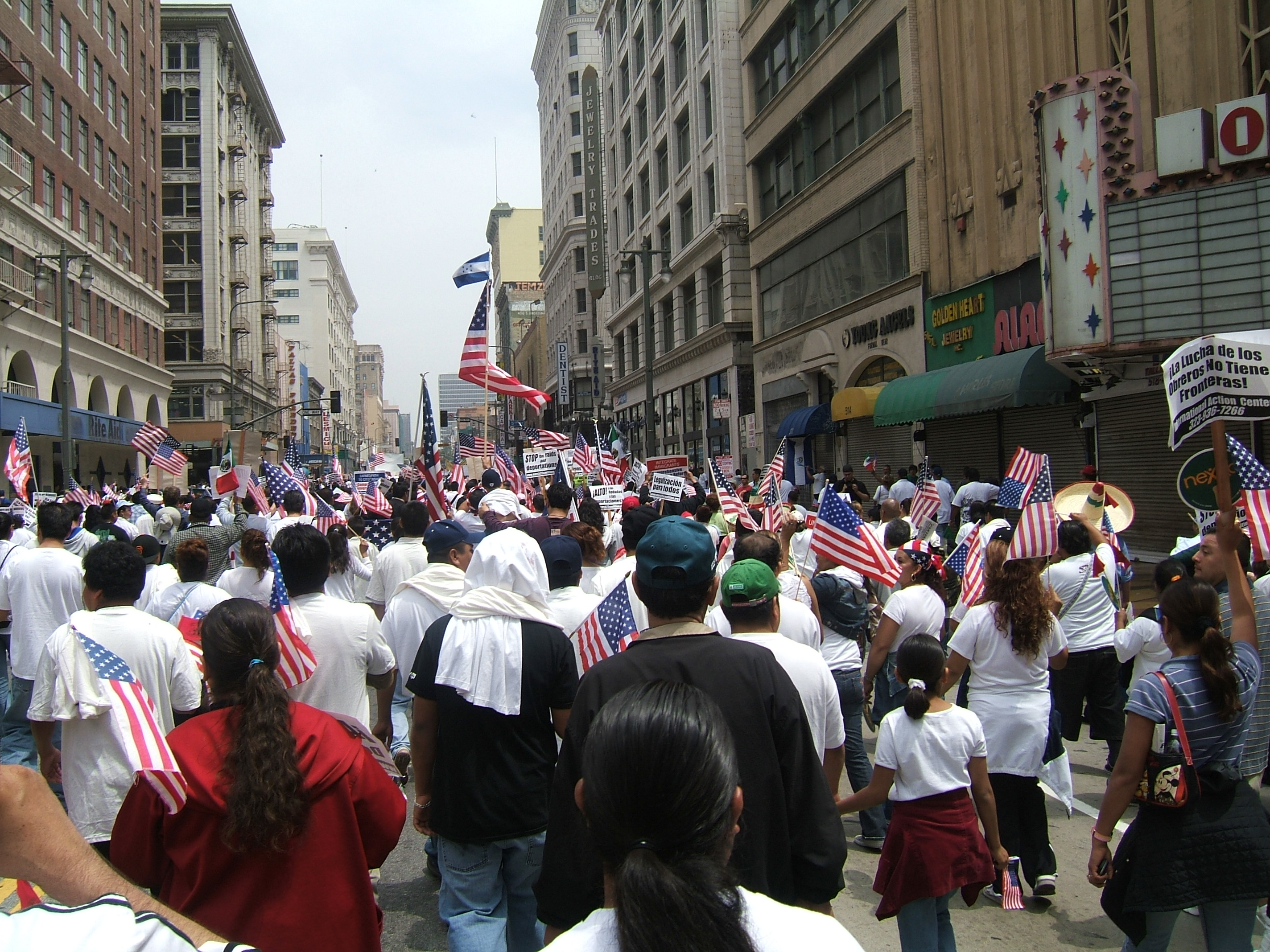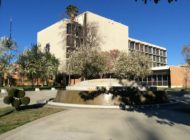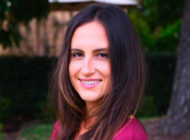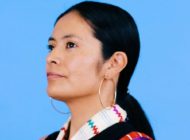To learn about the facts, make a plan, learn what the rule means and learn how the regulation can have an impact, families can go to https://www.protectingimmigrantfamilies.org Frequently asked questions can be found under “Analysis and Research.”
BY EDUARDO GARCÍA
EL NUEVO SOL
UPDATE 3/14: USCIS has made exemptions to the public charge rule to not discourage any person from getting testing, treatment and preventive care, including vaccines if available, for COVID-19, even if they’re funded by the public benefits. In the case people’s employments close down, lose their job, or need to stop attending school, they can submit a statement with their application to adjust their status or extend their visa explaining how the coronavirus has affected their eligibility, according to the non-profit organization, United We Dream.
Under the Supreme Court’s rule to allow the “public charge” regulation to take effect nationwide, the government expands its authority Feb. 24 to deny green cards to low-income immigrants and certain categories of legal immigrants who receive federal assistance.
Advocates, allies and an elected official discussed Jan. 31 on a telebriefing call some steps and options immigrant families can take, as well as who this ruling will particularly impact. While the ruling isn’t permanent, challenges to the regulation’s legality are continuing across the nation, except in Illinois, where there is a statewide injunction.
Under the U.S. Department of Homeland Security public charge rule, people applying for green cards and visas through “Adjustment of Status” within the United States will be affected. However, applicants outside the U.S. go through a separate public charge test handled by the U.S. Department of State.
The DHS rule will only apply to applications submitted on or after Feb. 24, 2020, according to the United States Citizenship and Immigration Services (USCIS). However, applicants who submit for certain non-cash public benefits before the date will not be considered in whether they are likely to be a public charge in the future.
The DHS expanded the public charge definition to include Medicaid, Supplemental Nutrition Assistance Program (SNAP), HUD public housing and “Section 8” housing benefits.
“In the regulation, Medicaid for children under 21, pregnant women, new mothers and emergency services will not be considered in public charge determination,” said Mayra Alvarez, president of The Children’s Partnership. “In addition, other programs like important school lunch programs and earned income tax breaks are safe to use if a family is eligible. ”
Madison Allen, senior policy attorney for the Center for Law and Social Policy (CLASP), said the reality is that few people who are subject to the public charge test qualify for public programs covered by the DHS rule. In addition, the rule expands to age, credit score and disability.
She also said immigrant families should not disenroll in any public program without consulting an immigration attorney if necessary.
Allen has four key messages for communities:
- Many immigrants will not be affected by the DHS final rule. These include refugees, asylees, survivors of trafficking, domestic violence, other serious crimes and other humanitarian immigrants. Lawful permanent residents or green card holders are not affected unless they leave the United States for over 180 days and then seek to come back.
- The use of public benefits will not automatically make someone a public charge. Immigration officials must look at all of an individual’s circumstances in determining if they are likely to be a public charge in the future. The circumstances include age, health, income, assets, resources, education, affidavits of support and family household size, including any immediate family members, as well as others that the applicant supports. Positive factors such as having a job or having health insurance can weigh against negative factors, such as having a health condition. Each individual has a chance to show why he or she is not likely to rely on certain benefits in the future.
- Many programs are not included in the public charge test, such as life savings, food and nutrition programs. These include Special Supplemental Nutrition Program for Women, Infants and Children (WIC), Children’s Health Insurance Program (CHIP), school lunches, food banks, shelters, Head Start and many other programs. Health care programs used by children and pregnant women are not included. Health, housing, nutrition and other non-cash benefits provided by state and local governments are not included.
- Benefits used by family members will not count in public charge decisions made in the United States. U.S. citizen family members can use the programs without worries. Benefits that someone’s child receives will not count against him or herself if their green card application is processed in the U.S. Benefits someone is receiving for their child or other family members are different then benefits received for themselves. Families who include their name in their child’s application does not mean they have applied for benefits for themselves.
Allen said under the totality of the circumstance test for income and asset, the rule applies negative weight to households who earn less than 125% of the federal poverty line, or about $32,000 for a family of four. In contrast, the test applies a heavy positive weight to households earning more than 250% of the federal poverty line, or about $65,000 for a family of four.
As for age, rule negatively weighs against someone who is younger than 18 or older than 61.
As for health, rule considers whether or not an applicant has health conditions that could require extensive treatment in the future, or that could impact their ability to work or attend school.
Allen also said the rule looks at if an applicant has proficient education and skills to maintain employment in the United States. Their employment and education history will be reviewed, as well as their proficiency in English or in other languages.
“The fear purposefully generated by the [Trump] administration is already causing some legal immigrants to disenroll themselves and their children from receiving benefits – benefits they need to be healthy, succeed in school and thrive,” Alvarez said. “According to a Kaiser Family Foundation survey released late last year, nearly half of community health centers report that many or some immigrant patients declined to enroll themselves in Medicaid in the past year. And a third of those health centers said that some patients dropped or decided not to renew their coverage.”
“In a survey that The Children’s Partnership conducted with our primary care association, we know that many children and immigrant families are experiencing increased health and mental health needs, while at the same time experiencing higher barriers to access in care, primarily due to these fears of detention, deportation and family separation,” Alvarez said.
U.S. Representative Judy Chu said that before the rule was finalized, many immigrants disenrolled in public programs in fear of jeopardizing their immigration status, increasing their chances of poor health outcomes and living in poverty. She said immigrants use fewer public benefits than native-born individuals, and that withholding benefits that immigrants qualify to pay for actually hurts the economy.
“That’s why I introduce the “No Federal Funds for Public Charge Act” (HR 3222) to oppose this rule,” Chu said. “This bill would ensure that no federal dollars can be used to implement this regulation.”
Alvaro Huerta, a staff attorney at the National Immigration Law Center, said the lawsuits against the regulation have two key arguments. One is that the Trump administration failed to take the proper necessary steps to finalize the rule and did not consider the evidence submitted by thousands of people who had said it was legally wrong and would cause harm. Other lawsuits argue that it is racially discriminatory. He said despite the legal challenges to the regulation, the final resolution might take months or years as it goes through the process in the district courts.
“We do not want families to make decisions to avoid using crucial programs that are fundamental to their family’s well-being without getting informed and making a plan,” Alvarez said. “Every family is different, and the programs that may help one family may not be included as part of the new changes.”
To learn about the facts, make a plan, learn what the rule means and learn how the regulation can have an impact, families can go to https://www.protectingimmigrantfamilies.org
Frequently asked questions can be found under “Analysis and Research.”Free or low-cost legal assistance options can be found at https://www.immigrationadvocates.org/nonprofit/
Tags: Eduardo García Public-Charge Rule















